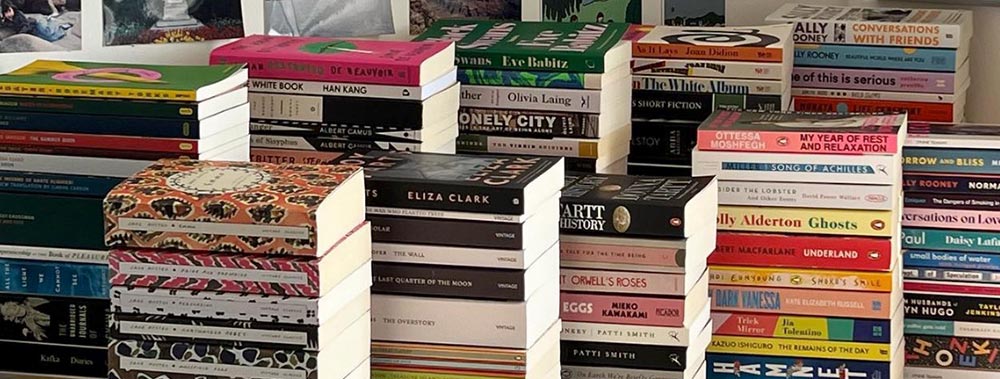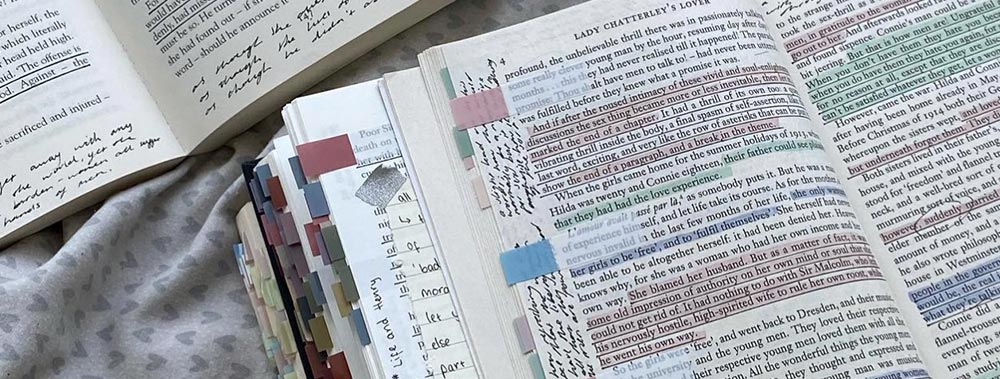Born a Crime: Summary, Plot, Characters, Literary Analysis & More
“Born a Crime” is a captivating memoir by Trevor Noah, first published in 2019.
The book stands as one of Trevor Noah’s greatest literary accomplishments, offering a searingly funny yet poignant narrative that delves into his remarkable life growing up in apartheid-era South Africa.
As a mixed-race child born to a black Xhosa mother, Patricia Nombuyiselo Noah, and a white Swiss father, Trevor’s existence itself was deemed a crime under the apartheid system.
Through his mischievous adventures, keen sense of humor, and extraordinary resilience, Trevor illuminates the systemic racism, social challenges, and power struggles of a dangerous time.
This “Born a Crime” summary explores the themes, literary nuances, and Trevor Noah’s remarkable storytelling, showcasing his journey from a restless young man navigating racial segregation to becoming a renowned South African comedian and host of “The Daily Show.”

Trevor Noah's 'Born a Crime': A heartfelt journey through apartheid South Africa, humorously reflecting on identity, family, and resilience.
Table of Contents
Summary The Plot Characters Key Themes Genres Language used Literary devices Summing upThe Plot
“Born a Crime” navigates Trevor Noah’s riveting journey through his South African childhood during the apartheid era.
As a mixed-race child, Trevor’s existence defied the apartheid laws that prohibited interracial relationships.
Growing up with his fiercely religious black Xhosa mother, Patricia, and negotiating a world where black and white were strictly segregated, Noah’s upbringing was marked by challenges, humor, and resilience.
His later ascent to fame, including his role as host of “The Daily Show,” alongside mentor Jon Stewart, adds depth to this poignant tale of identity, survival, and triumph over adversity.
Characters
Each individual mentioned in this book contributes uniquely to Trevor’s story, which is set against the backdrop of apartheid South Africa.
Trevor Noah
As you’d expect, Trevor Noah is the central character and narrator of “Born a Crime.”
Born to a black Xhosa mother and a white Swiss father during apartheid South Africa, he defies racial norms and survives with humor and resourcefulness, ultimately becoming a renowned comedian and host.
Patricia Nombuyiselo Noah
Trevor’s black Xhosa mother stands as a pillar of strength.
Her unconventional approach to life, fierce religious beliefs, and unyielding love shape Trevor’s worldview and guide him through the challenges of growing up in a racially divided society.
Jon Stewart
He is a well-known comedian and television host and plays a significant role as Trevor Noah’s mentor.
Through their shared experiences on “The Daily Show,” Jon imparts valuable insights and skills to Trevor, paving the way for his successful career.
Nelson Mandela
He remains an influential figure in “Born a Crime.”
As a symbol of resistance against apartheid, Mandela’s efforts to dismantle racial segregation inspired Trevor’s perspective on societal change and the power of unity.
Key Themes
“Born a Crime” explores themes of racial identity and cultural clashes in post-apartheid South Africa.
Trevor Noah’s experiences as a mixed-race child navigating the tensions between black and white communities reveal the lasting impact of apartheid.
Noah’s mischievous escapades and poignant anecdotes shed light on the resilience of black South Africans, portraying the strength required to transcend adversity while maintaining a sense of humor.
In Trevor Noah’s memoir, “Born a Crime,” the themes of racial identity and cultural clashes in post-apartheid South Africa are central to the narrative. Here’s a discussion of these themes:
Racial Identity
Trevor Noah was born to a black Xhosa mother and a white Swiss father during a time when interracial relationships were illegal under apartheid laws, making his existence a crime.
His mixed-race heritage forced him to confront complex issues of racial identity.
He navigates a world where people’s perceptions of him change based on their racial biases.
This constant struggle to fit into predefined racial categories highlights the absurdity of apartheid’s racial classifications.
Cultural Clashes
The book explores the cultural clashes that Noah experiences due to his mixed heritage.
He is neither fully accepted by the black community nor by the white community.
As a result, he becomes a cultural chameleon, adapting his behavior, language, and identity to fit into different social contexts.
This highlights the challenges of finding one’s place in a society recovering from the deep divisions created by apartheid.
Language and Communication
Language plays a significant role in the theme of cultural clashes.
Noah discusses how he learned multiple languages, including Xhosa, Zulu, English, and Afrikaans, to navigate the diverse cultural landscape of South Africa.
His ability to speak multiple languages becomes a valuable tool for bridging cultural divides and understanding people from various backgrounds.
Post-Apartheid South Africa
While apartheid officially ended in the early 1990s, the book underscores that the legacy of apartheid still deeply influences South African society.
Trevor Noah’s experiences growing up in the post-apartheid era highlight the challenges of reconciling the past with the present.
He observes that while laws had changed, attitudes and prejudices persisted, making it clear that true racial equality and harmony were not instantly achieved.
Genres in Born a Crime
“Born a Crime” seamlessly blends elements of memoir, autobiography, and comedic storytelling.
This fusion enhances the story’s authenticity and emotional resonance, allowing readers to connect with Trevor Noah’s personal journey.
The humor injected into this memoir not only entertains but also serves as a vehicle to convey the gravity of apartheid’s effects on society.
Language used in Born a Crime
Trevor Noah’s writing style in “Born a Crime” is marked by its vividness and emotional depth.
His language captures the landscapes of post-apartheid South Africa, creating an atmosphere that immerses readers.
Through his language, Noah deftly portrays the mischievous young boy he once was, making his narrative relatable and engaging.
His storytelling, often drawn from his comedic experiences, makes readers feel like they’re watching Trevor Noah perform live.
Literary devices in Born a Crime
Through vivid imagery, he paints a detailed portrait of his South African upbringing, allowing readers to experience the complexities of apartheid and post-apartheid society.
This memoir follows the Bildungsroman genre, tracing Trevor’s personal growth and identity formation from a mischievous young boy to an accomplished comedian and host.
Noah’s use of humor, irony, and social commentary adds depth to his storytelling, while anecdotes and personal reflections offer insights into his journey of self-discovery and the intricacies of racial dynamics.
Similes
Trevor Noah employs vivid similes to illustrate his experiences. Comparing his birth during apartheid to a “crime” highlights the illicit nature of his existence.
Furthermore, describing his black mother, Patricia, as a “black woman in a world dominated by fear” underscores her courage and resilience.
Such similes create relatable imagery that enhances the reader’s understanding of the challenges faced by Trevor and his family.
Metaphors
The metaphor of his mother, Patricia, being a “warrior woman” symbolizes her strength in the face of adversity.
Eden Park, the neighborhood where Trevor grew up, becomes a metaphor for the complex dynamics of racial segregation.
These metaphors enrich the narrative, offering readers insights into the complex emotional and societal landscapes Trevor navigated during his upbringing.
Analogies
Trevor Noah artfully weaves analogies throughout his memoir, providing readers with insightful parallels to complex themes.
The union of his parents, involving interracial sex, becomes a metaphorical bridge between societal divides, reflecting his biracial identity.
Analogizing his stand-up journey from open-mics to Comedy Central mirrors his personal growth, much like a writer refining a story.
His father’s life sentence, stemming from selling illegal bootleg CDs, is a poignant analogy of systemic injustices within the South African government.
Such analogies illuminate the narrative, shedding light on both personal and societal struggles.
Imagery
Trevor Noah skillfully employs vivid imagery throughout “Born a Crime” to craft immersive sensory experiences for readers.
Descriptions of Trevor’s mother, a resilient figure in his life, evoke the scent of her cooking, the warmth of her embrace, and the strength in her gaze.
The private Catholic school he attends becomes alive through detailed depictions of echoing hallways and stern nuns. His encounters with a diverse South African tribe are painted with vibrant colors, unique customs, and the rhythms of their music.
This imagery envelops readers, enhancing the depth of Noah’s story and the vibrant tapestry of his upbringing.
Symbolism
As readers watch Trevor Noah on TV, his journey from marginalized beginnings to public prominence symbolizes the transformative power of resilience.
Trevor Noah’s birth, viewed as a “crime” due to apartheid, becomes a potent symbol of racial divisions and societal constraints.
These symbols thread through the tapestry of his life, connecting to larger themes of identity, social justice, and the human capacity to overcome adversity, enriching the poignant narrative in “Born a Crime.”
Personification
As Trevor Noah navigates South African society, it’s portrayed as a formidable entity, shaping his experiences and interactions.
Trevor’s journey as he joins the world of comedy is personified, turning it into a mentor, offering challenges and rewards.
Additionally, Noah’s mother emerges as a beacon of strength, personified through her unwavering determination.
These instances deepen character portrayals and offer readers a nuanced understanding of the dynamic Sydney Opera House and the complexities within Trevor’s relationship with his white father.
Hyperbole
Trevor’s realization of his mother’s sacrifices, though a single instance, is a hyperbolic portrayal of a profound revelation.
The impact of Trevor’s work culminating in a deal with Penguin Random House is magnified, marking it as a pinnacle of achievement.
Furthermore, Trevor’s parents are symbolized through hyperbole, highlighting their extraordinary qualities.
Irony
While describing the struggle of Noah’s family in apartheid-era South Africa, the poignant and sometimes comical situations create a searingly funny portrait of adversity.
The dynamics within Noah’s life, particularly his religious mother’s influence, juxtapose with his own explorations and choices, revealing layers of irony.
His young man’s relationship with a richer white school friend is marked by situational irony, highlighting societal disparities.
The irony of his upbringing, attending a youth church under a streetlight, contrasts with the conventional church experience.
Paradox
Trevor’s decision to leave his church when he joins the world of comedy appears contradictory, yet symbolizes his pursuit of truth and authenticity.
As Noah describes his mother’s tough love, its juxtaposition with her unwavering support becomes a paradoxical emblem of her complex nurturing.
Allegory
While not overtly allegorical, “Born a Crime” subtly carries elements of allegory.
The end of apartheid signifies broader themes of liberation and change. The turf wars Trevor witnesses can be seen as a microcosm of societal struggles.
His experiences, a blend of hardship and triumph, become an allegory for the wider human experience. Elements like the CD writer, while specific, can symbolize technological leaps and cultural shifts.
These allegorical nuances enhance the story’s universality, inviting readers to explore beyond the surface of Trevor’s journey.
The Use of Dialogue
Trevor Noah employs dialogue adeptly in “Born a Crime” to reveal character traits and enhance themes. Conversations with Trevor’s father unveil their complex relationship, showcasing his father’s wisdom and life lessons.
Interactions with black kids underscore shared struggles, contributing to a sense of community. Noah writes exchanges highlight Trevor’s literary ambitions and his mother’s support, emphasizing their bond.
Conversations about religion with his religious mother delve into faith and cultural dynamics. These dialogues enrich character development and deepen the exploration of prevailing themes.
Word Play
Trevor Noah’s humorous portrayal of living a “crime” highlights both his biracial identity and the ludicrousness of apartheid.
The place where Noah lived becomes both a statement of existence and a commentary on survival.
These wordplay elements are instruments of humor and depth, creating engaging layers that resonate with readers.
Parallelism
Descriptions of Trevor’s experiences, from his childhood antics to navigating black kids’ dynamics, are presented in parallel.
This structural technique underscores the universal themes of identity, growth, and resilience, resonating with readers through its consistent and balanced framework.
Born a Crime: FAQs
In this section, we address common questions and curiosities about Trevor Noah’s captivating memoir.
Delve into the intricacies of his life, the book’s themes, and its impact on readers, as we unravel the threads of this remarkable narrative.
What is Born a Crime about in summary?
Trevor Noah’s memoir, “Born a Crime,” explores his life growing up in apartheid-era South Africa as a mixed-race child, highlighting the challenges and absurdities of racial segregation.
What are the main points of “Born a Crime”?
The book delves into Trevor’s relationship with his strong-willed mother, his experiences in a racially divided society, and his journey towards becoming a successful comedian and television host, all while shedding light on the complexities of identity and race.
What is the ending of “Born a Crime”?
The book ends with Trevor Noah’s departure from South Africa and his pursuit of a career in comedy, leaving the reader with a sense of hope and resilience despite the challenges he faced during his upbringing.
Summing up: Born a Crime: Summary, Plot & More
As you now know from this “Born a Crime” summary, the book intricately weaves Trevor Noah’s remarkable life journey against the backdrop of apartheid South Africa.
Through vivid imagery, analogies, and personification, his experiences resonate with readers, offering a poignant exploration of identity, resilience, and societal complexities.
The clever use of wordplay, puns, and dialogue further enriches the narrative, engaging both intellect and emotions. As Trevor’s narrative shifts from hardships to triumphs, paradoxes and allegorical elements emerge, underscoring universal themes.
The structure, including repetition and parallelism, enhances the book’s coherence while embracing a diverse range of rhetorical devices.
“Born a Crime” is a powerful testament to the human spirit’s capacity to transcend adversity, combining humor, introspection, and societal commentary to create an enduring impact that resonates with readers worldwide.
Its universal appeal lies in its ability to evoke laughter, empathy, and contemplation, making it a timeless work that speaks to the complexity of the human experience.
Other Notable Works by Trevor Noah
If you are interested in Great Expectations, you may be interested in other works by Trevor Noah including:
- “It’s Trevor Noah: Born a Crime“:
This adaptation of his memoir is geared toward young readers, offering a captivating journey through Trevor’s life in a format that resonates with a younger audience. With its relatable storytelling and insights into apartheid, it’s a compelling educational tool.
- “Trevor Noah: Lost in Translation“:
In this collection of essays, Trevor delves into his experiences as an outsider, offering his unique perspective on his various homes and the cultural shifts he’s navigated. With his trademark humor and introspection, he explores identity and belonging in a global context.







